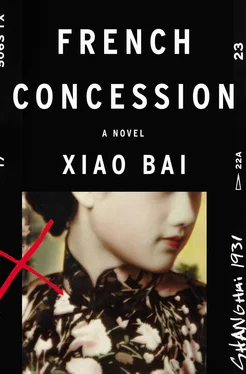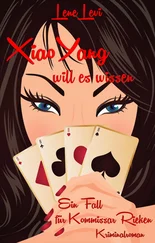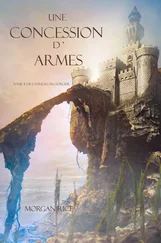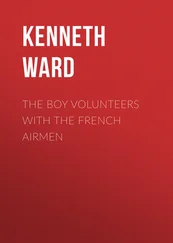That afternoon, Ch’ien, the steward from Hopeh, beckoned to him from the hotel counter and told him to leave by the back door instead of by Yuyaching Road, which was jam-packed because the famous storyteller Li Po-k’ang had jumped ship to Eastern Bookstore, and every rickshaw in town seemed to be coming here to hear him perform.
Zung put his skullcap on the counter. He was wearing a gray jacket that came down to his knees, cinched black trousers, and a length of silk for a belt, the ends of which hung over the back of the chair, as though he had draped a pouch over it. The police were here at noon, Ch’ien said. They inspected the sign-in books and asked questions about a certain Mr. Ch’en.
“You’re kidding.”
“I swear I’ve never told a lie in my life.”
Therese was right, he thought. I should be careful. Maybe I should move to another hotel right now. At the YMCA swimming pool, Zung told Therese what he had heard at the hotel. But she did not seem concerned. She did seem tired. On the weekends she disappeared, and Yindee told him that Therese was spending her weekends with that half-breed photographer. To top it all off, it was Maslenitsa that weekend, and Therese always made a point of taking Maslenitsa off. But he had pressing news for her. He had just closed a deal, and that night they would have to agree on a time and place for delivery.
The young man sitting to the left of Zung was wearing a black leather jacket and round-rimmed spectacles. He had many names, and Park Kye-seong was only one of them. In Hong Kong he had been working for a trading company based in Busan, and he had placed an order with Zung for them. He could even speak the Cantonese dialect just as fluently as he spoke Mandarin Chinese.
The other man was even younger, and he sat up very straight opposite Zung, with both his hands placed flat on the table, as if he were a Boy Scout or a student awaiting a boarding school inspection of fingernails. Zung had deliberately chosen this expensive Western restaurant to make his guests feel slightly uncomfortable. He picked out a table in the center of the restaurant, the better to observe how his guests’ wary glances darted across the room.
Park introduced the youngster as Mr. Lin P’ei-wen. Just call me Lin, the other said. They barely spoke, and the restaurant was quiet. It had no bar, no gramophone, not even a mirror on the wall, lest it dampen the guests’ appetite. But there were flowers everywhere, and even the picture frames contained flowers and fresh fruit. Before the first course was served, Mr. Romantz himself came to the table, smiled, bowed, and laid the table.
Park was not shy when it came to food. He plucked out the spine of an entire smoked trout with his fingers, and his knife and fork sparkled like weapons.
There were five small tables, and a foot-high platform on the far end of the room held a larger table surrounded by an iron railing, beneath which potted roses had been arranged. A curved corridor to the left of the platform seemed to lead into another room.
The sweetness of Alhambra cigars filled the room, and between the warm and cold desserts, Zung cut Luzon cigars. “La Flor de la Isabela,” he murmured, offering them to his guests politely, as if they were flowers from the Spanish royal gardens. But Park’s mouth was full of pudding, and he did not want a cigar. Nor did the overpowering cigar smoke agree with Lin, who leaned back on the soft leather cushions of the chair.
None of them was in a hurry to talk business. This was a small restaurant, and you could smell the tang of a new bottle of pepper when it was opened at the next table. They said a bottle of pepper here cost more than a whole meal would elsewhere. Who would talk about a deal here, right in the middle of the room? Everyone would think you were a bunch of imposters — unless they took you seriously and started paying attention, which was worse.
The coffee cup was the size of half an eggshell. It was hexagonal, like everything else in the room: the saltshaker, the small table, even the room itself. Mrs. Romantz appeared next, bearing a flat rattan fruit basket containing two mangoes and two American oranges. She bowed and smiled as she presented it to them, and then bowed and smiled again, as if congratulating herself on a successful performance.
It was already nine o’clock at night, and the sound of a band playing on the rooftop of the French Club wafted toward them. Zung was waiting. He couldn’t tell whether his guests had the authority to make decisions about their deal. He had been expecting Mr. Ku, but Mr. Ku had not appeared, even though Zung had chosen the restaurant in part because it was near his quarters. The smoke played mysteriously in the electric light, and the air quivered with the rhythm of the Charleston. Zung asked his guests whether they wanted to go to a dance hall, but no one responded to his ill-timed joke.
Park left the restaurant first, alone. Ten minutes later, Zung and Lin left together.
When they came out onto the street, the Lyceum Theater was still playing. The Ford cars in the garage belonging to the cab service next door, Moody Inc., were arranged in two neat lines, like two rows of beetles staring with their large compound eyes, caught in the bright white light and unable to move. Zung and Lin stood on either side of the cavelike entrance to the garage. On the opposite side of the street, only one window was lit on the third floor of the Cathay Mansions, and its white window frames glowed pale blue in the night. Under the windows hung a large pair of glasses with arms that could be extended outward onto the street. Just then the arms were completely extended and suspended over the sidewalk, as though someone had smashed them. The left lens read LEUNG MAN-TAO; the right lens read MEDICAL DOCTOR.
Zung did not know where Lin wanted to take him. Maybe his good faith had finally earned him the right to meet Mr. Ku. Maybe they were only going to keep him waiting elsewhere. He was on the verge of losing his temper, but he kept his cool. The car drove south along Route Cardinal Mercier and past Route Vallon. Then Lin motioned for the driver to stop.
JUNE 7, YEAR 20 OF THE REPUBLIC.
9:25 P.M.

Park hid in the driveway of a luxury bespoke tailor on Route Cardinal Mercier. The lowered shop awnings kept out the glare of streetlights. He saw a car drive past with Mr. Zung and Lin in the backseat, and waited until it was a couple of hundred meters away before hurrying in its direction. During the half hour between nine and nine-thirty, the streets were empty, like a stage at intermission. Nothing moved among the shadows of the parasol trees except the wind. It was warm and dank, and there was a putrid smell, as if a hidden monster had belched. Their car was the only one to drive along Route Cardinal Mercier for a whole two minutes. A cat meowed in the copse behind the walls of the French Club.
Park saw the car gradually come to a halt at the side of the road. Then he waited a few more minutes to make sure they weren’t being tailed before walking up and getting in next to the driver. The car started up again. Park unbuttoned his top button and lit a cigarette. Before long he had smoked a third of the cigarette, as if he had been sitting there with them the whole time.
Park was Korean. He had been a young actor playing bit parts in Shanghai when he joined a group of Korean Communists, among whom he soon came to play a leading role. He traveled to all the coastal cities of southeastern China: Chou-shan, Hong Kong, and sometimes even Haiphong and Penang. Moscow funded the group’s activities and gave him three months of training in Khabarovsk. But before long, other Korean cells active in Irkutsk and Vladivostok began to ostracize Park’s cell. In Moscow, they were debating whether it was more important to protect the Soviet Union or to continue the task of world revolution. In the resulting bureaucratic reorganization, Park’s cell lost its financial support and ceased to receive orders from Moscow. They decided to send a delegation on the dangerous journey through Manchuria to Moscow, to defend themselves at the debates taking place there. The discussions grew so heated that someone started a fight, and word was that it was Park’s older brother.
Читать дальше













